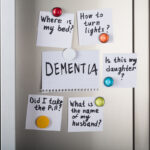
Clarissa Giebel reviews a recent study exploring the impact of auditory hallucinations on ‘living well’ with dementia using findings from the IDEAL programme.
[read the full story...]
Clarissa Giebel reviews a recent study exploring the impact of auditory hallucinations on ‘living well’ with dementia using findings from the IDEAL programme.
[read the full story...]
Marie Crabbe looks at a recent retrospective cohort study in The Lancet Public Health which explores the contribution of alcohol use disorders to the burden of dementia in France.
[read the full story...]
Rosalyn Nelson summarises a recently updated Cochrane systematic review of statins for dementia prevention, which finds no evidence to support their use.
[read the full story...]
Akshay Nair explores the results of a systematic review of cognitive tests for dementia and mild cognitive impairment, which focuses on the MMSE, Mini-Cog, ACE-R and MoCA instruments. Along the way he explains how diagnostic tests work and how sensitivity and specificity are useful measures to get your head around.
[read the full story...]
Vascular dementia is the second most common type of dementia after Alzheimer’s disease. It’s caused by damage to the network of blood vessels supplying the brain. Some symptoms are similar to those associated with Alzheimer’s and stroke, but in particular people with vascular dementia often experience difficulty thinking quickly, concentrating and communicating, as well as [read the full story…]